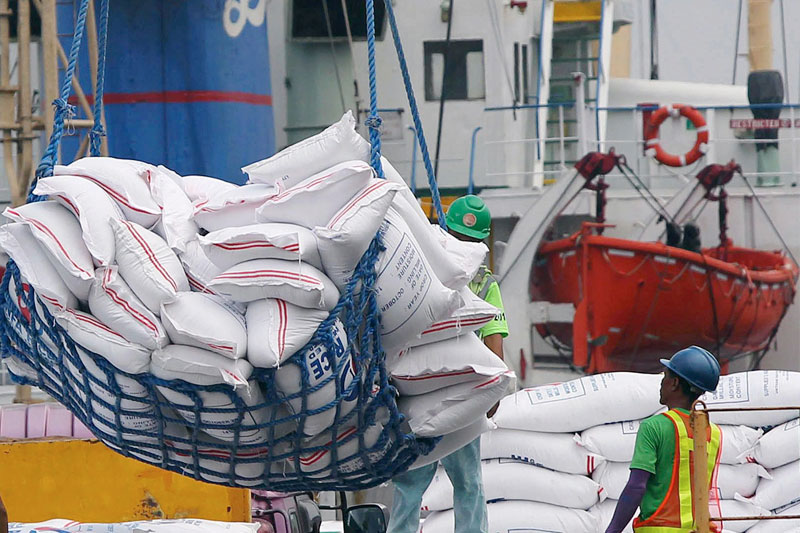Philippines: Rice tariff seen to mitigate TRAIN impact on inflation
MANILA, Philippines — The passage of a bill which seeks to remove the quantitative restrictions (QR) on rice imports could lower inflation by one percentage point and offset the inflationary impact of the tax reform law, an official of the Bangko Sentral ng Pilipinas (BSP) said.
In a press briefing, BSP Deputy Governor Diwa Guinigundo said the rice tariffication bill pending in both houses of Congress could become a “game changer” that would help lower prices of rice, and thus overall inflation.
“This will have a very positive effect on inflation management. Because based on our initial forecast, if Congress is able to pass this tariffication bill, it will slice off about one percentage point from inflation. Why? Because rice is nine percent of the total consumer basket,” Guinigundo said.
Under the new bill, the government will lift the QR imposed on rice imports, and increase its tariff to 35 percent.
Earlier, Finance Undersecretary and chief economist Gil Beltran said lifting the QR on rice, in favor of imposing higher tariff, would encourage traders to import the commodity and allow the influx of cheaper rice into the domestic market.
He said this would cut the retail price of rice by as much as P7 per kilogram, and generate P27.3 billion in additional revenue in the next six years.
Meanwhile, Guinigundo said the downward effect of the rice tariffication bill on inflation could also serve as a mitigation against the upward inflationary impact of the Tax Reform for Acceleration and Inclusion (TRAIN) Act.
Earlier, the BSP said it expects the TRAIN to raise inflation by less than one percentage point.
As such, the central bank earlier announced an inflation forecast of 3.4 percent in 2018 and 3.2 percent in 2019, Guinigundo said.
However, the BSP official said there could still be downward adjustments in the inflation estimate due to the final version of TRAIN and the lower revenue expected from the law.
“Our forecast was premised on about P134 billion revenue potential revenue of the government. But I think right now we’re talking of about P82 billion. So we are in fact, taking this into account in formulating our forecast for 2018 and 2019. So, if at the beginning our forecast was less than one percent, it could be even lower,” he said.
Guinigundo said the new adjustments would be announced on Feb. 8, after the Monetary Board’s next policy meeting.
Republic Act 10963 or the TRAIN Act aims to simplify the country’s tax system by lowering personal income tax rates.
Source: http://www.philstar.com/business/2018/01/21/1779727/rice-tariff-seen-mitigate-train-impact-inflation


 English
English




